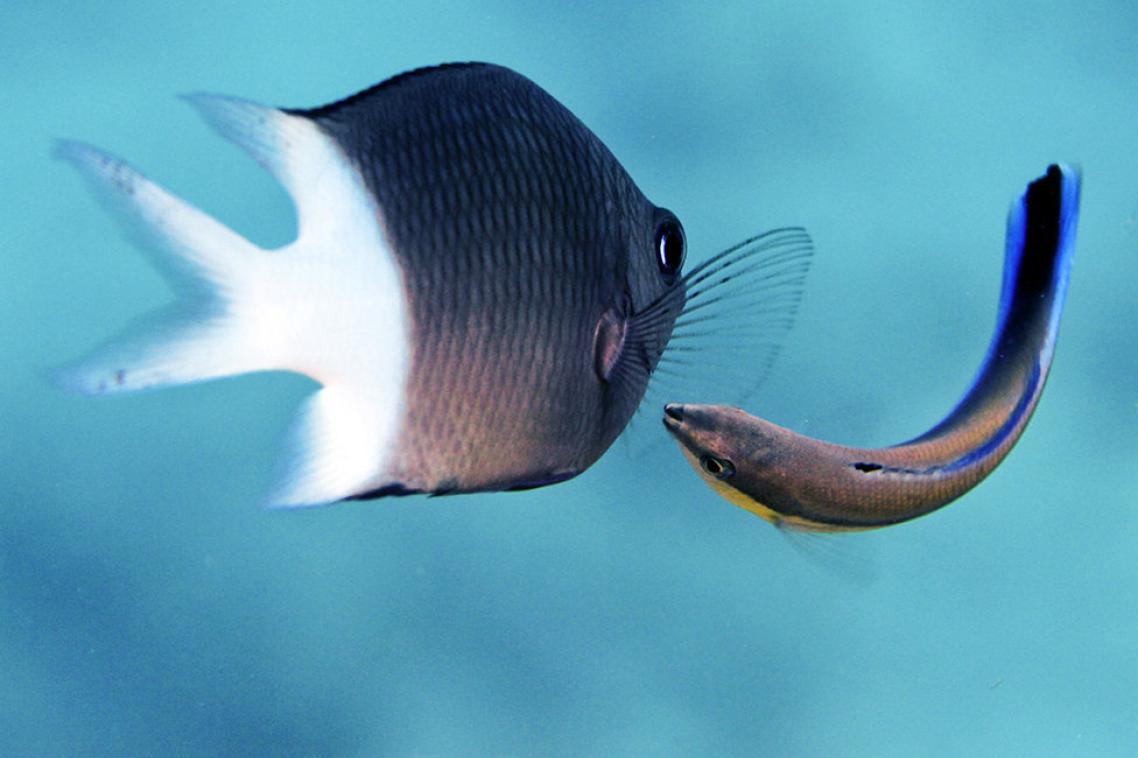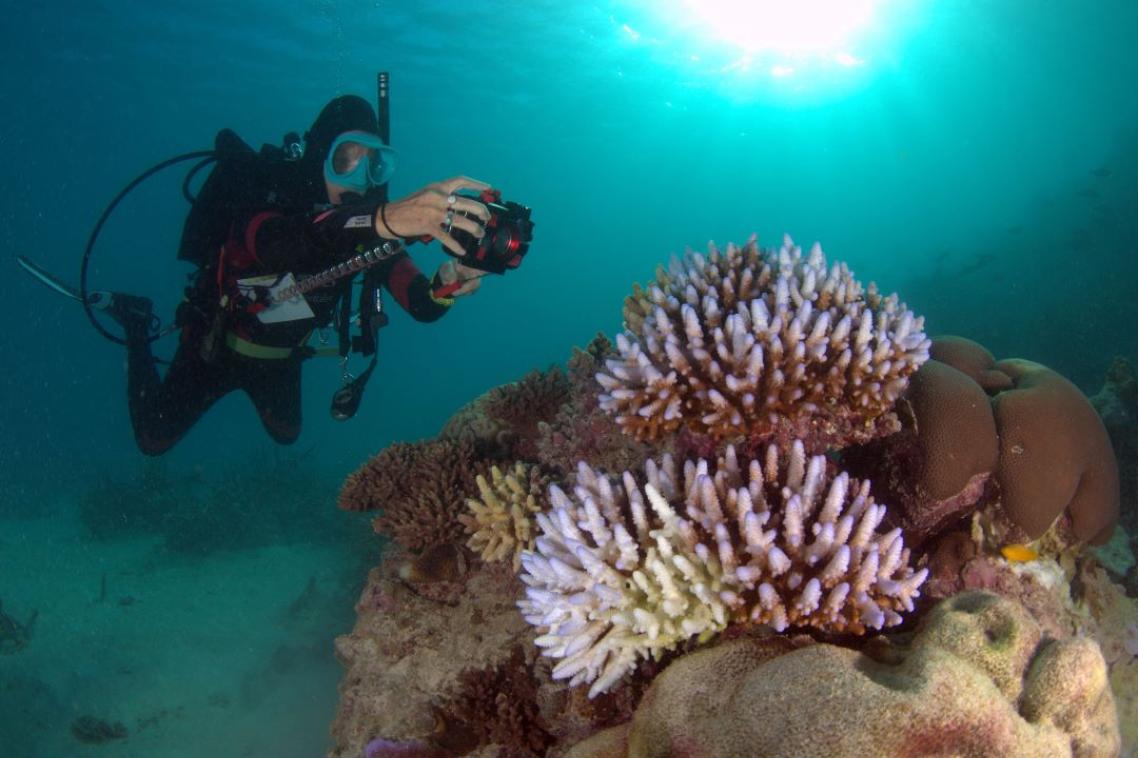Clean body, clean mind: parasite-pickers promote learning potential

Researchers from The University of Queensland and Université de Montréal have shown coral reef fish learn less when they have a parasite infection and can’t access ‘cleaning’ fish such as wrasse.
Dr Derek Sun and Dr Alexandra Grutter from UQ’s School of Biological Sciences were part of a team that measured the ability of fish to solve a feeding test at the Lizard Island Research Station on the Great Barrier Reef.
Montréal’s Dr Sandra Binning, who led the study, said fish were collected from small, isolated reefs that had either been left untouched or had cleaner wrasse removed since 2000.
“We compared the performance of these fish with natural levels of infection to the performance of fish that had been infected with parasite crustaceans known as gnathiidae,” Dr Binning said.
“Infection with parasites, especially in high numbers, significantly affected the ability of a fish to learn.”
Dr Sun said the results might not be surprising to anyone who had tried to do activities requiring thinking and concentration while sick.
“When we’re ill, our body shifts energy away from our brain to fight off the illness,” Dr Sun said.
“Although fish can’t take medication when they’re feeling under the weather, they can enlist the help of cleaners to help rid them of their parasites.
“This access to cleaning services can dramatically improve a fish’s performance in a learning test.”
Dr Binning said the importance of reduced access to cleaners on ‘client’ fish needed to be considered when setting collection limits and managing marine parks.
“Cleaners may not be the largest or most abundant fish on the reef, but they affect the well-being of thousands of their clients.
Dr Grutter said removing parasites was only one of the beneficial services wrasse provide to their clients.
“Our research at UQ has shown the presence of cleaner wrasse on reefs reduce gnathiid parasite loads and client stress levels, and increase local fish abundance and diversity, fish size and growth.”
The study, which also involved Dr Dominique Roche, Dr Simona Colosio and Professor Redouan Bshary from the University of Neuchatel in Switzerland and Dr Joanna Miest from the University of Greenwich in the UK, is published in the Proceedings of the Royal Society B: BiologicalSciences.
Related articles

Thousands of Queensland reef photos lead to worldwide change

From war-torn Liberia to the UQ Law School: a graduate’s inspiring family legacy
Media contact
UQ Communications
communications@uq.edu.au
+61 429 056 139
